Daily Vocabulary Words: List of Daily Used Words in Leading Indian Newspapers
Hi there. Welcome to this special section @ Wordpandit. Our endeavour here is straightforward: highlighting daily vocabulary words that you would come across in leading newspapers in the country. We have included the following newspapers in our selection:
• The Times of India
• The Economic Times
• Hindustan Times
• Mint
• Indian Express
We are putting in extensive work to develop your vocabulary. All you have to do is be regular with this section and check out this post daily. This is your repository of commonly used words; essentially, we are posting a list of daily used words. Hence, this has significant practical application as it teaches you words that are commonly used in leading publications mentioned above.
Visit the website daily to learn words from leading Indian newspapers.
WORD-1: Erode
CONTEXT: They threaten to erode public confidence.
SOURCE: The Indian Express
EXPLANATORY PARAGRAPH: Imagine you have a sandcastle near the water at the beach. Over time, the waves keep washing over it, and little by little, the sandcastle starts to disappear. This is like ‘erode’, where something slowly wears away or gets smaller because of water, wind, or other things.
MEANING: To gradually wear away or diminish due to the action of natural forces like water or wind (verb).
PRONUNCIATION: ih-rohd
SYNONYMS: Wear away, Deteriorate, Diminish, Undermine, Decay
USAGE EXAMPLES:
1. The riverbanks eroded over several years.
2. Rain can erode the soil in your garden.
3. The constant waves eroded the coastal rocks.
4. Over time, trust in their relationship eroded.
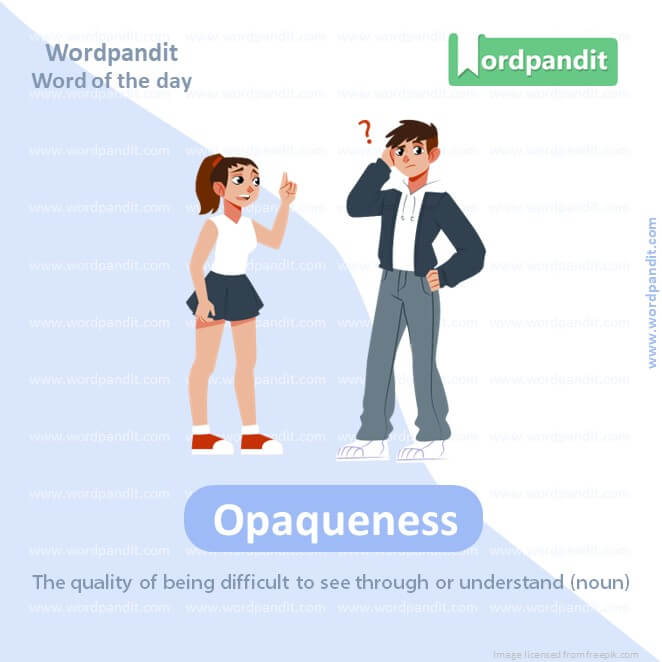
WORD-2: Opaqueness
CONTEXT: A certain “opaqueness” may be necessary and preferable for the Collegium system to function.
SOURCE: The Indian Express
EXPLANATORY PARAGRAPH: Think about a window that you can’t see through because it’s covered with something like a curtain or paint. That’s like ‘opaqueness’, which means you can’t see through it.
MEANING: The quality of being difficult to see through or understand (noun).
PRONUNCIATION: oh-payk-ness
SYNONYMS: Obscurity, Murkiness, Cloudiness, Obscuration, Impenetrability
USAGE EXAMPLES:
1. The opaqueness of the bathroom window provided privacy.
2. Her writing style has a certain opaqueness to it.
3. The glass had an opaqueness that blocked the light.
4. The opaqueness of the instructions confused everyone.
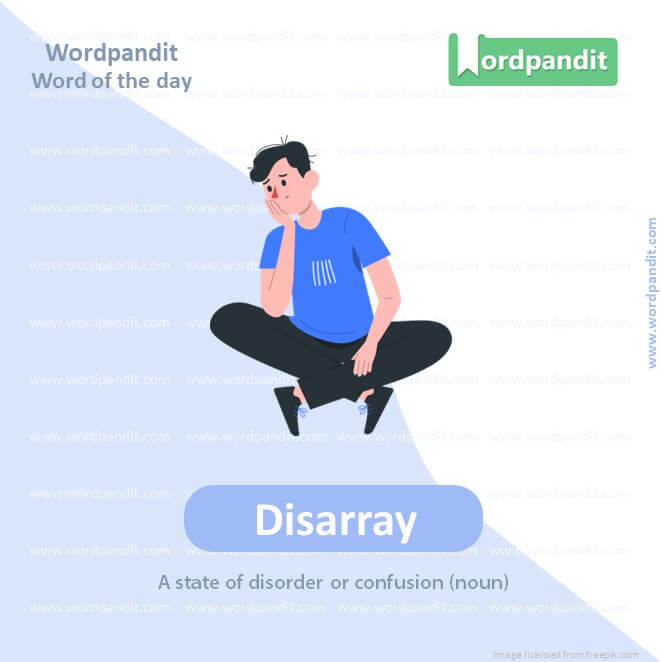
WORD-3: Disarray
CONTEXT: The first time at the World Cup, they threw our plans into disarray and we couldn’t counter theirs.
SOURCE: The Indian Express
EXPLANATORY PARAGRAPH: Imagine your toy room is all messy, with toys everywhere and nothing in its place. This is like ‘disarray’, where things are not organized and are all over the place.
MEANING: A state of disorder or confusion (noun).
PRONUNCIATION: dih-suh-ray
SYNONYMS: Disorder, Chaos, Confusion, Mess, Tangle
USAGE EXAMPLES:
1. After the party, the house was in complete disarray.
2. His papers were in disarray on the desk.
3. The team was in disarray after the coach left.
4. The kitchen was in disarray with pots and pans everywhere.
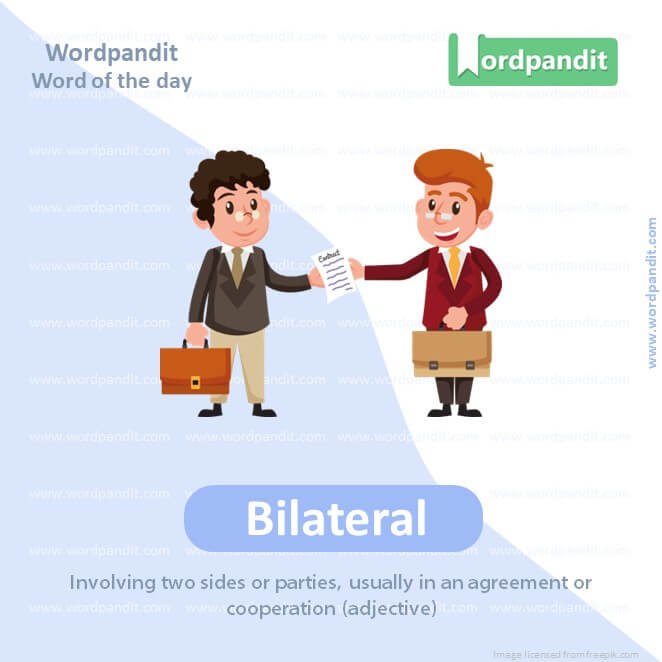
WORD-4: Bilateral
CONTEXT: The President of China, holding a summit and discussing various global and bilateral issues including the West Asia situation, Iran, Taiwan, climate change and military communication.
SOURCE: The Indian Express
EXPLANATORY PARAGRAPH: Think about playing a game with just one other friend. Both of you have to agree on the rules. ‘Bilateral’ is like this, where two sides or two people are involved in something.
MEANING: Involving two sides or parties, usually in an agreement or cooperation (adjective).
PRONUNCIATION: bye-lat-uh-rul
SYNONYMS: Two-sided, Mutual, Joint, Reciprocal, Duplex
USAGE EXAMPLES:
1. They signed a bilateral agreement.
2. The countries engaged in bilateral trade.
3. Bilateral discussions helped resolve the issue.
4. The treaty was a bilateral commitment.
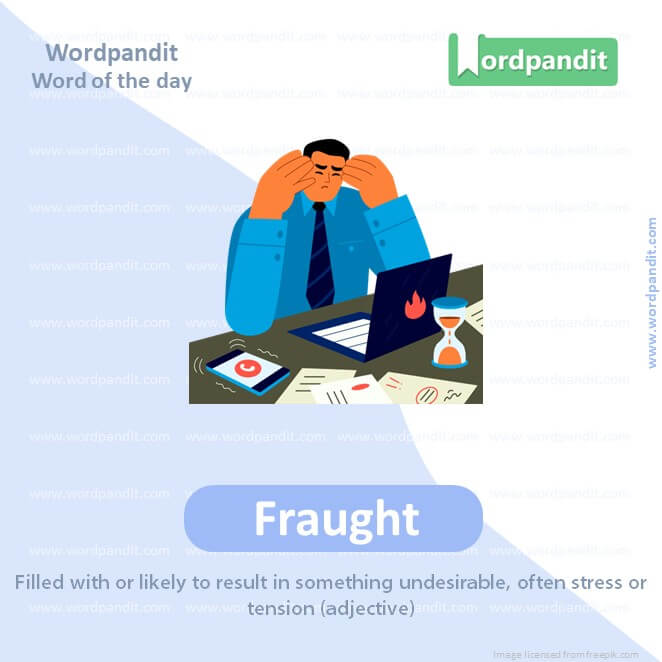
WORD-5: Fraught
CONTEXT: The fraught nature of the world today makes the reopening of summit communications between the US and China seem like a big thing.
SOURCE: The Indian Express
EXPLANATORY PARAGRAPH: When you feel really worried or stressed about something, like the first day of school, that’s like ‘fraught’. It means filled with a lot of anxiety or stress.
MEANING: Filled with or likely to result in something undesirable, often stress or tension (adjective).
PRONUNCIATION: frawt
SYNONYMS: Filled, Charged, Tense, Stressful, Laden
USAGE EXAMPLES:
1. The meeting was fraught with tension.
2. Her journey was fraught with difficulties.
3. The atmosphere was fraught with anxiety.
4. The decision was fraught with risk.
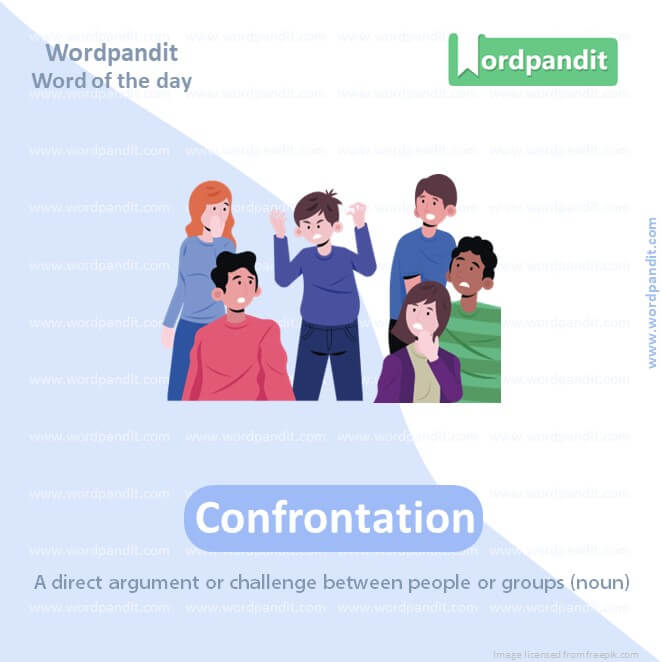
WORD-6: Confrontation
CONTEXT: APEC emphasized the rivalry between them but perhaps reduced the rough edge of confrontation.
SOURCE: The Indian Express
EXPLANATORY PARAGRAPH: Imagine you and a friend disagree on which game to play and start arguing. That’s like a ‘confrontation’, where people argue or fight because they disagree.
MEANING: A direct argument or challenge between people or groups (noun).
PRONUNCIATION: kon-fruhn-tay-shuhn
SYNONYMS: Conflict, Clash, Encounter, Showdown, Face-off
USAGE EXAMPLES:
1. The disagreement led to a confrontation.
2. They avoided confrontation by talking calmly.
3. The confrontation between the two teams was intense.
4. There was a confrontation at the meeting.
WORD-7: Collapsed
CONTEXT: The precious lives of 41 workers stuck inside a partially collapsed tunnel in the Himalayas.
SOURCE: The Indian Express
EXPLANATORY PARAGRAPH: Think about building a tower with blocks, and suddenly it falls down and is no longer standing. This is like ‘collapsed’, which means to fall down or fall apart.
MEANING: To suddenly fall down or give way, often due to weakness or being overwhelmed (verb).
PRONUNCIATION: kuh-lapst
SYNONYMS: Fell, Crumbled, Tumbled, Gave way, Succumbed
USAGE EXAMPLES:
1. The old building collapsed.
2. He collapsed from exhaustion.
3. The bridge collapsed during the storm.
4. Their plans collapsed at the last minute.
WORD-8: Endeavour
CONTEXT: This is not a backward-looking endeavor, but an anchor in this world.
SOURCE: Times Of India
EXPLANATORY PARAGRAPH: When you try really hard to do something, like learning to ride a bike, even if it’s tough, that’s ‘endeavor’. It means putting in a lot of effort to do something.
MEANING: To try hard to achieve or do something (verb).
PRONUNCIATION: en-dev-ur
SYNONYMS: Attempt, Strive, Try, Undertake, Labor
USAGE EXAMPLES:
1. She endeavored to finish her homework.
2. They endeavored to create a new project.
3. He will endeavor to improve his grades.
4. The team endeavored to win the championship.
WORD-9: Narratives
CONTEXT: When historical narratives are told with drama and flair, they can become seductive stories, making us project current animosities into long-ago events.
SOURCE: Times Of India
EXPLANATORY PARAGRAPH: Think about when someone tells you a story about what happened at their birthday party. This is like ‘narratives’, which are stories or accounts of events.
MEANING: Accounts or stories that describe a series of events (noun).
PRONUNCIATION: nar-uh-tivs
SYNONYMS: Stories, Accounts, Tales, Chronicles, Sagas
USAGE EXAMPLES:
1. The book contains several interesting narratives.
2. Different people shared their personal narratives.
3. The film weaves together multiple narratives.
4. He enjoys reading historical narratives.
WORD-10: Unequivocally
CONTEXT: The West has done a quick volte-face and unequivocally endorsed Israel’s claim of zero tolerance for terror.
SOURCE: Times Of India
EXPLANATORY PARAGRAPH: Imagine saying “YES!” very loudly and clearly when asked if you like ice cream. This is like ‘unequivocally’, which means saying or doing something in a very clear and definite way.
MEANING: In a way that leaves no doubt; clearly and unambiguously (adverb).
PRONUNCIATION: un-ee-kwiv-uh-klee
SYNONYMS: Clearly, Definitely, Unmistakably, Decisively, Indisputably
USAGE EXAMPLES:
1. She unequivocally stated her opinion.
2. The results were unequivocally positive.
3. He unequivocally denied the allegations.
4. The decision was made unequivocally.
vocabulary correction
Vocabulary correction plays a critical role in enhancing the eloquence of our verbal and written communication. It is necessary to conquer the nuances of a language and get the message across clearly.
Learning vocabulary correction shouldn’t come across as a daunting task laden with an overbearing list of complicated words. In fact, it’s a lifelong journey that evolves continuously with constant learning and usage. So, how exactly does one embark on this journey of vocabulary correction?
Initially, it’s essential to read extensively. Make books, newspapers, blogs and scholarly articles your best friends. They are the potential wellsprings of words waiting to enrich your vocabulary. As you come across unfamiliar words or phrases, have a dictionary and thesaurus handy to comprehend their meanings and usage.
Next, regularly engaging in vocabulary games and quizzes is a fun method of vocabulary correction that shouldn’t be understated. Not only does it expand your knowledge, but it also tests your current vocabulary prowess. Word puzzles, crosswords, and language learning mobile applications offer great platforms for this.
Writing is another powerful tool for effective vocabulary correction. Jotting down thoughts, ideas, or chronicling day-to-day experiences helps us weave words together, enhancing our vocabulary use. You look for the right words to express yourself, and in the process, you learn the correct usage of previously unfamiliar words.
No course of vocabulary correction is complete without active conversation. Engaging in meaningful dialogues introduces us to different styles and manners of speech. We pick up new words and expressions that we may not stumble upon during solitary reading or writing.
Lastly, vocabulary correction involves continuous practice and diligence. Language learning is not a one-and-done deal. It’s a consistent task of engaging, experimenting, and adapting. Remember, vocabulary correction can be monumentally effective education; make sure you learnt it the right way.













